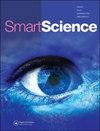基于可靠性的维修方法在考虑装配时间和能量的作业车间调度中的效果仿真评估模拟研究
IF 1.4
Q2 MULTIDISCIPLINARY SCIENCES
引用次数: 3
摘要
随机作业车间调度环境下的维修对实时调度问题具有显著的环境影响。本仿真研究评估了一种基于可靠性的预防性维护方法对系统性能的影响,该方法考虑了具有序列相关设置时间(SDST)的作业车间调度问题。考虑了两种基于可靠性的维护方法,即以可靠性为中心的预防性维护方法(RCPM)和以可靠性为中心的定期预防性维护方法(RCPPM)。车间有10种不同的机器和6种工种。考虑了6个调度指标和2个面向能源的性能指标(Pms)来评估系统的性能。结果表明,对于平均流程时间、完工时间、平均运行能耗、平均闲置能耗和总机组Pms,推荐的可靠性水平较低,分别为0.74、0.78和0.82。对于RCPM方法,建议将平均延迟和延迟作业Pms数量的可靠性设置为0.74。当维护时间为运行时间的5%时,RCPPM方法通过平均流程时间、完工时间、平均延迟时间、平均运行能耗、平均闲置能耗和延迟作业数提供了最佳的系统Pms。相反,平均设置和总设置Pms与维护时间无关。对两种方法进行比较,统计分析表明,当维护时间占运行时间的15%或大于15%时,推荐使用RCPM方法。当维护时间占设备运行时间的10%或10%以下时,建议使用RCPPM方法进行维护规划。考虑环境因素的实时调度工作是本研究的新颖之处。本文章由计算机程序翻译,如有差异,请以英文原文为准。
Assessing the Effect of Reliability-Based Maintenance Approach in Job Shop Scheduling with Setup Time and Energy Consideration Using Simulation; A Simulation Study
ABSTRACT Maintenance in a stochastic job shop scheduling environment significantly impacts real-time scheduling problems with the environmental aspect. This simulation research assesses the effect of a reliability-based preventive maintenance approach to system performance for considering job shop scheduling problems with sequence-dependent setup time (SDST). Two types of reliability-based maintenance approaches are considered, i.e., reliability-centered preventive maintenance (RCPM) and a reliability-centered periodic preventive maintenance approach (RCPPM). The shop comprises 10 different machines and six job types. Six scheduling and two energy-oriented performance measures (Pms) are considered for evaluating the system’s performance. Results reveal that lower levels of reliability, namely, 0.74, 0.78, and 0.82 recommended for mean flow time, makespan, average operation energy consumption, average idle energy consumption, and total setups Pms. A 0.74 level of reliability is recommended for mean tardiness and the number of tardy jobs Pms for the RCPM approach. RCPPM approach provides the best system Pms by mean flow time, makespan, mean tardiness, average operation energy consumption, average idle energy consumption, and the number of tardy jobs when maintenance time is 5% of operation time. In contrast, mean setup, and total setups Pms are independent of maintenance time. Both approaches get compared, and its statistical analysis shows that if maintenance time is 15% or more than 15% of the operation time, the RCPM method is recommended. If maintenance time is 10% or less than 10% of the operation time, maintenance planning is recommended using the RCPPM approach. Considering real-time scheduling work with the environmental aspect represents the novelty of the present study.
求助全文
通过发布文献求助,成功后即可免费获取论文全文。
去求助
来源期刊

Smart Science
Engineering-Engineering (all)
CiteScore
4.70
自引率
4.30%
发文量
21
期刊介绍:
Smart Science (ISSN 2308-0477) is an international, peer-reviewed journal that publishes significant original scientific researches, and reviews and analyses of current research and science policy. We welcome submissions of high quality papers from all fields of science and from any source. Articles of an interdisciplinary nature are particularly welcomed. Smart Science aims to be among the top multidisciplinary journals covering a broad spectrum of smart topics in the fields of materials science, chemistry, physics, engineering, medicine, and biology. Smart Science is currently focusing on the topics of Smart Manufacturing (CPS, IoT and AI) for Industry 4.0, Smart Energy and Smart Chemistry and Materials. Other specific research areas covered by the journal include, but are not limited to: 1. Smart Science in the Future 2. Smart Manufacturing: -Cyber-Physical System (CPS) -Internet of Things (IoT) and Internet of Brain (IoB) -Artificial Intelligence -Smart Computing -Smart Design/Machine -Smart Sensing -Smart Information and Networks 3. Smart Energy and Thermal/Fluidic Science 4. Smart Chemistry and Materials
 求助内容:
求助内容: 应助结果提醒方式:
应助结果提醒方式:


